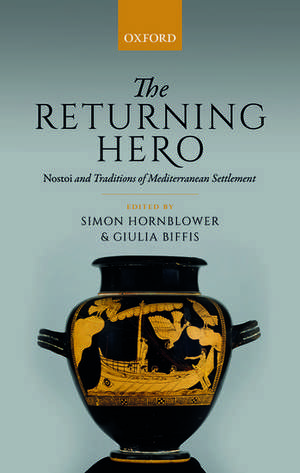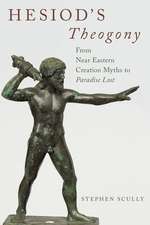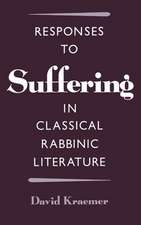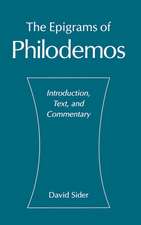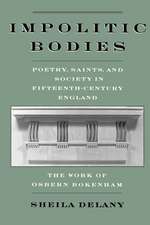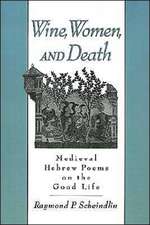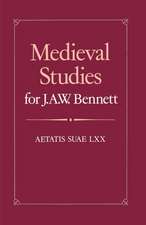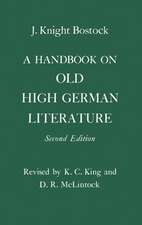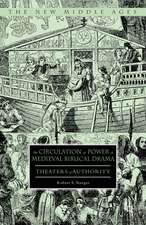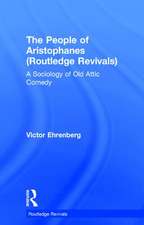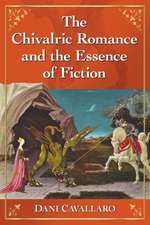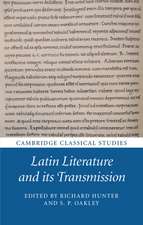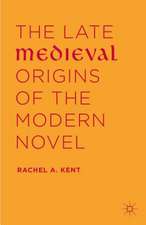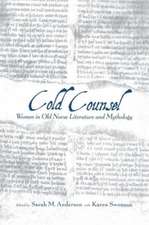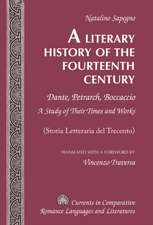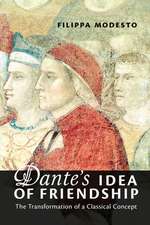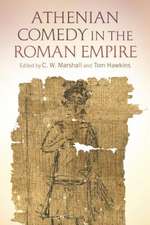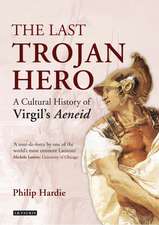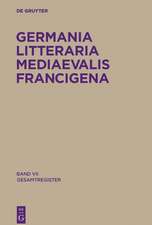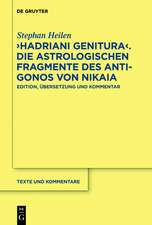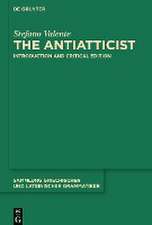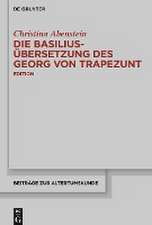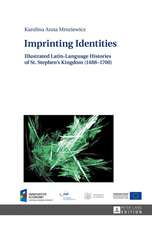The Returning Hero: nostoi and Traditions of Mediterranean Settlement
Editat de Simon Hornblower, Giulia Biffisen Limba Engleză Hardback – 27 sep 2018
Preț: 701.95 lei
Preț vechi: 901.69 lei
-22% Nou
Puncte Express: 1053
Preț estimativ în valută:
134.36€ • 145.99$ • 112.94£
134.36€ • 145.99$ • 112.94£
Carte tipărită la comandă
Livrare economică 09-15 aprilie
Preluare comenzi: 021 569.72.76
Specificații
ISBN-13: 9780198811428
ISBN-10: 019881142X
Pagini: 378
Ilustrații: 22 black-and-white illustrations
Dimensiuni: 148 x 223 x 28 mm
Greutate: 0.59 kg
Editura: OUP OXFORD
Colecția OUP Oxford
Locul publicării:Oxford, United Kingdom
ISBN-10: 019881142X
Pagini: 378
Ilustrații: 22 black-and-white illustrations
Dimensiuni: 148 x 223 x 28 mm
Greutate: 0.59 kg
Editura: OUP OXFORD
Colecția OUP Oxford
Locul publicării:Oxford, United Kingdom
Recenzii
It is a ... volume that will richly repay anyone interested in the various cultural, historical, psychological, and comparative aspects of home, home -- leaving, and returning home in the ancient Mediterranean.
This is a rich and stimulating collection, which is likely to become a decisive contribution to our understanding of the social and historical background of the mythological tradition of nostoi.
... the collection is a stimulating contribution to cultural history... [Translated from German]
Overall, the volume is strong, with material to engage specialists in nostoi myths, mobility and settlement patterns, and ancient identity formation.
The concept of the returning hero originates with the tales of the Nostoi of the heroes after the Trojan War, and their travels and travails across the Mediterranean; but the volume manages to link these tales to the wider issue of the 'traditions of Mediterranean settlement'.
The topic is presented through the different viewpoints of scholars specialising in history, literature, myth, and archaeology ... This volume offers a range of interesting ideas on the theme of nostos, chiefly by pointing out how difficult it is to return home after absence, when neither the returner nor the home is the same.
This is a rich and stimulating collection, which is likely to become a decisive contribution to our understanding of the social and historical background of the mythological tradition of nostoi.
... the collection is a stimulating contribution to cultural history... [Translated from German]
Overall, the volume is strong, with material to engage specialists in nostoi myths, mobility and settlement patterns, and ancient identity formation.
The concept of the returning hero originates with the tales of the Nostoi of the heroes after the Trojan War, and their travels and travails across the Mediterranean; but the volume manages to link these tales to the wider issue of the 'traditions of Mediterranean settlement'.
The topic is presented through the different viewpoints of scholars specialising in history, literature, myth, and archaeology ... This volume offers a range of interesting ideas on the theme of nostos, chiefly by pointing out how difficult it is to return home after absence, when neither the returner nor the home is the same.
Notă biografică
Simon Hornblower was most recently a Senior Research Fellow in Classical Studies at All Souls College, Oxford, until his retirement in 2016. Earlier in his career he was a Prize Fellow at All Souls College from 1971 until 1977 before becoming Tutorial Fellow in Ancient History at Oriel College and University CUF Lecturer. In 1997 he was appointed Professor of Classics and Professor of Ancient History at UCL, where he remained until 2010 (from 2006 as Grote Professor of Ancient History).Giulia Biffis is Associate Lecturer in Greek at Birkbeck College, London and Research Associate in Classics at the University of Reading for this academic year. She was previously a Teaching Fellow at the University of Reading and at the University of Edinburgh after gaining her PhD in Classics at University College London in 2012. In parallel with her work on myths of return in ancient Greek literature she is also currently working on Lykophron's Alexandra and its relationship with female characterization in the Greek world.
